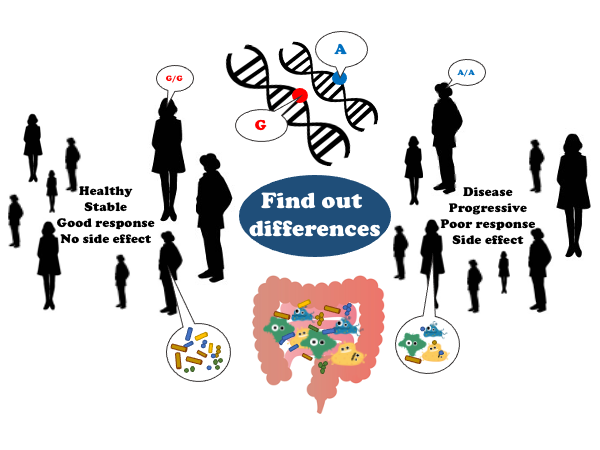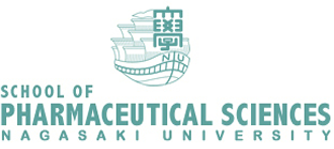Research
Department of Pharmacotherapeutics
Teaching staffs
| Name, Position | Email *convert [a] to @ |
Tel | Fax |
|---|---|---|---|
| Kazuhiro Tsukamoto, M.D. & Ph. D. Professor | ktsuka[a]nagasaki-u.ac.jp | +81-95-819-8573 | +81-95-819-8575 |
| Tatsuro Hirayama, M.D. & Ph. D. Associate Professor |
tatsuro_h_20[a]nagasaki-u.ac.jp | +81-95-819-8574 | +81-95-819-8575 |
Research interests
- Association studies on susceptibility genes for diseases, progression, drug effectiveness, adverse effects, and prognosis using genetic polymorphic markers
- Research of DNA-based diagnostic methods for personalized medicine
- Research into antifungal drug-resistance mechanisms of pathogenic fungi
Selected publications
- Ohishi Y, Nakamura M, Iio N, Higa S, Inayoshi M, Aiba Y, Komori A, Omagari K, Ishibashi H, Tsukamoto K. Single-nucleotide polymorphism analysis of the multidrug resistance protein 3 gene for the detection of clinical progression in Japanese patients with primary biliary cirrhosis. Hepatology 48:853-862, 2008.
- Nanashima K, Mawatari T, Tahara N, Higuchi N, Nakaura A, Inamine T, Kondo S, Yanagihara K, Fukushima K, Suyama N, Kohno S, Tsukamoto K. Genetic variants in antioxidant pathway: risk factors for hepatotoxicity in tuberculosis patients. Tuberculosis 92:253-259, 2012.
- Yamashita A, Inamine T, Suzuki S, Fukuda S, Unoike M, Kawafuchi Y, Machida H, Isomoto H, Nakao K, Tsukamoto K. Genetic variants of SMAD2/3/4/7 are associated with susceptibility to ulcerative colitis in a Japanese genetic background. Immunol Lett 207:64-72, 2019.
- Yamaguchi N, Sakaguchi T, Isomoto H, Inamine T, Ueda H, Fukuda D, Ohnita K, Kanda T, Kurumi H, Matsushima K, Hirayama T, Yashima K, Tsukamoto K. ATG16L1 and ATG12 gene polymorphisms are involved in the progression of atrophic gastritis. J Clin Med 12(16):5384, 2023.
- Hirayama H, Miyazaki T, Tanaka R, Kitahori N, Yoshida M, Takeda K, Ide S, Iwanaga N, Tashiro M, Takazono T, Izumikawa K, Yanagihara K, Makimura K, Tsukamoto K, Mukae H. TAC1b mutation in Candida auris decreases manogepix susceptibility owing to increased CDR1expression. Antimicrob Agents Chemother 69(2): e0150824, 2025.
Works
Please find latest works in their website.







